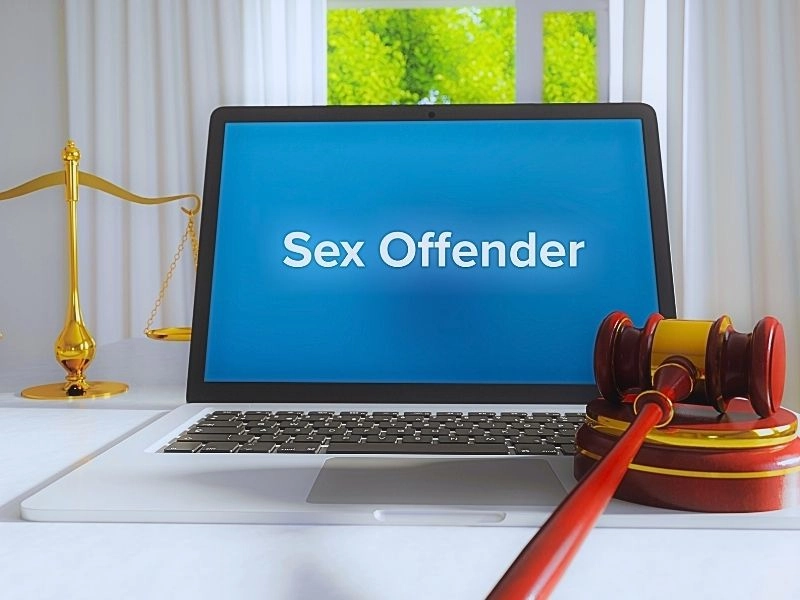All sex offenders convicted of felony sex crimes are required to register their home address with local law enforcement. If charged with a sex crime, a criminal defense lawyer Minneapolis can explain the different levels assigned to each crime and sentencing guidelines for convicted sex offenders.

Table of Contents
What is a Registered Sex Offender?
A registered sex offender is a person, male or female, who has been convicted of a crime involving a specific sexual act. After sex offenders have served their criminal sentences or have been released on parole, federal, state and local laws require that they be placed on the Sexual Offender Registry. In Minnesota, sexual acts can range from misdemeanors to serious felonies that require a criminal defense lawyer Minneapolis.
The Community Notification Act
The Community Notification Act, established in 1991, requires all felony Level 3 sex offenders to register their home address with local law enforcement. In addition, the Community Notification Act of 1996 requires local law enforcement to inform the public about registered sex offenders who live in their community. The Community Notification Act allows a community to prepare for the impact of a sex offender’s release and move into their neighborhood.
Registration and notification laws are not retroactive. Sex offenders convicted prior to 1991 are not required to register their home address with law enforcement. Sex offenders released from prison prior to 1997 are not subject to community notification under the Community Notification Act. A criminal defense lawyer Minneapolis can answer questions about required registration.
The Minnesota Department of Corrections posts information on Level 3 registered sex offenders within 48 hours of receiving authorization from local law enforcement. Level 3 sex offenders in the State of Minnesota are posted on the Minnesota Department of Corrections Level 3 Predatory Offender Information website.
Convictions That Require Registration
- Criminal sexual conduct of any nature
- Felony indecent exposure
- False imprisonment and/or kidnapping
- Solicitation of a minor for sexual conduct or prostitution
- Engaging with or using a minor for sexual acts
- Possession of pornographic pictures, videos or images of minors
In Minnesota, convicted sex offenders are required to register for a specified period of time or the duration of probation, whichever is longer. Some convictions require registration for life. If convicted sex offenders fail to register, the following consequences apply.
- First time convictions can result in a prison sentence of one year and one day.
- Each Failure to Register violation will result in an additional registration period of five years added to the offender’s original registration period.
- Subsequent convictions for Failure to Register may result in a minimum two year prison sentence.
- If an offender is re-incarcerated, a minimum 10 year registration period will start over upon release.
Risk Levels for Sex Offenders in Minnesota
The Minnesota Department of Corrections assigns tier and risk levels to convicted sex offenders released from prison on or after January 1, 1997. The level of the offense is based on the crime committed, the severity of the crime, the age of all involved parties, and the risk of the offender to commit the offense again. The federal government has established tier levels for offenses based on on certain criteria, but every state is allowed to enact stricter laws. In Minnesota, a criminal defense lawyer Minneapolis can explain the impact of these laws.
Tier I Offenses (Level 1 Sex Offender) – Sex crimes of a non-violent nature committed with persons of the age of majority. Tier I offenses require registration on the Sexual Offender Registry for a minimum of 15 years, with yearly verification. Risk Level 1 indicates a low risk that the sex offender will re-offend.
Tier II Offenses (Level 2 Sex Offender) – Sex crimes of a non-violent nature, but involving a minor. Tier II offenses require registration on the Sexual Offender Registry for a minimum of 25 years, with verification twice a year. Risk Level 2 indicates a moderate risk that the sex offender will re-offend.
Tier III Offenses (Level 3 Sex Offender) – Sex crimes of a violent and/or non-violent nature involving adults and/or minors. Level 3 offenses are the most serious types of sex crimes. Tier III offenses require registration on the Sexual Offender Registry for the duration of the offender’s lifetime, with verification on a quarterly basis. Risk level 3 indicates a high risk that the sex offender will re-offend.
Approximately 75 percent of registered sex offenders in Minnesota have never been assigned risk levels. This includes registered offenders released from Minnesota prisons before January 1, 1997, registered offenders sentenced to probation, and juvenile offenders. Prior to July 1, 2005, registered sex offenders from other states now living in Minnesota were not assigned risk levels unless they were released to Minnesota directly from a prison in another state.





